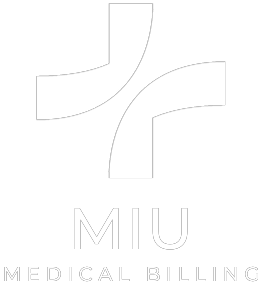Introduction
Within the intricate framework of healthcare administration, denial management in medical billing appears as an essential component that requires quick attention. Being confronted with a medical claim that has been denied can be an intimidating experience for healthcare practitioners since it can result in financial pressure and administrative difficulties. Throughout this article, we will look into emergency techniques to efficiently deal with denied medical claims, ensuring that denial management in medical billing is carried out flawlessly.
Acquiring Knowledge of the Denial Management Process in Medical Billing:
In medical billing, denial management refers to systematically processing refused claims to correct errors, address anomalies, and obtain reimbursement from payers. Healthcare providers must develop proactive measures and remain updated about the constantly shifting landscape of medical billing legislation to navigate this complex procedure successfully.
The Most Common Causes of Claims Being Refused
First things first: before going into emergency procedures, it is essential to determine the most common reasons why medical claims are denied. These can include patient information that is either wrong or missing, problems in coding, a lack of proof regarding medical necessity, and submissions made too late. When providers can recognize these trends, they can adjust their approach to denial management in medical billing to handle specific difficulties more effectively.
Emergency Strategy 1: Real-Time Claim Scrubbing
Implementing a system that scrubs claims in real-time can dramatically reduce denied claims. The claims are checked for flaws by this automated procedure before they are submitted, ensuring that they comply with the standards of the payer. Streamlining the process of reimbursement and preventing unnecessary denials are two benefits that can be achieved by providers who identify mistakes early on in the billing cycle.
Emergency Strategy 2: Robust Documentation Practices
An essential component of effective denial management is the creation of detailed documentation. It would help if you ensured that your medical records are complete, which means that they should contain accurate patient data, full treatment plans, and explicit reasons for medical operations. This bolsters your case during the initial step of the claims filing process and provides a firm platform for appeals if your claim is denied.
Emergency Strategy 3: Automated Appeals Management
You must act quickly if your claim is rejected. Through the generation of appeal letters, the monitoring of deadlines, and the organization of supporting evidence, the use of an automated appeals management system speeds up the appeals process. Automating this activity, which is typically time-consuming, allows physicians to concentrate on treating patients while resolving denied claims effectively.
Discovering the Key to Financial Success Through MIU’s Expertise in Denial Management
In the complex environment of healthcare finances, MIU MEDICAL BILLING stands out as a shining example of expertise in denials management. It is MIU’s understanding that denied claims can significantly impact a healthcare provider’s bottom line, which drives them to utilize a strategic and efficient method. Using cutting-edge technologies and a group of knowledgeable professionals, MIU can penetrate the intricate network of denials, determine the underlying causes, and implement individualized remedies. Because of this, the revenue cycle has been streamlined, there have been minimal disruptions, and the financial foundation for healthcare practices has been strengthened. Instead of being a reactive difficulty, denial management in billing is transformed into a proactive strategy when MIU is utilized.
Concluding remarks
In conclusion, Denial Management Services in medical billing are essential to efficient revenue cycle management. It is possible for healthcare providers to confidently navigate the complex environment of medical billing if they have a solid awareness of the common reasons for claim denials and if they employ proactive methods.
These emergency tactics, discussed in this blog, provide a road map to a speedy settlement if a Code Red occurs, which is a denied medical claim. Durable denial management in the medical billing system results from various factors, including real-time claim scrubbing, rigorous documentation practices, and automated appeals processing.
Through these emergency techniques, healthcare providers improve their ability to remain financially viable and ensure that the experience is more streamlined for both their personnel and their patients. Denial management is not only a requirement in the ever-changing world of healthcare administration but also a strategic imperative that must be mastered.




